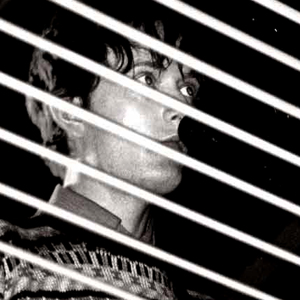Andy Gill on The Mercury Prize
In one fell swoop, Speech Therapy’s poor sale, and Debelle’s subsequent disappearance from the media spotlight, revived the “Curse of the Mercury Prize” after Elbow’s success the previous year had done much to dispel this most amusing of media myths (in which winning the Mercury Prize appeared to presage the immediate decline, disappearance or disbandment of Suede, M People, Pulp, Roni Size & Reprazent, Gomez, Talvin Singh, Badly Drawn Boy, PJ Harvey, Ms Dynamite, Franz Ferdinand and Antony & The Johnsons - the jury still being out on Klaxons, who won in 2007 when any sane judgment would have acknowledged Amy Winehouse’s ascendancy).
Not that my personal preference for Amy Winehouse and Kasabian over Klaxons and Speech Debelle ought to be taken as suggesting that the Mercury Prize should simply represent sales performance; but the obverse preferences, as chosen by the mysterious panel of Mercury judges, do confirm their quixotic, frequently baffling attitude towards what constitutes musical quality, or indeed the very notion of “best”. The most common criticism made of Mercury Prize judgments is that they appear less concerned with intrinsic musical matters as with the desperate desire on the judges’ parts to appear cooler than thou, and to confound expectations. Which aim was certainly achieved with last year’s Speech Débâcle - although the sheer poverty of the shortlist made such a disaster virtually unavoidable, if the panel was determined, as seemed the case, not to award front-runners Kasabian, The Horrors, La Roux or Florence & The Machine.
In its defence, the quixotic nature of the Mercury Prize does at least offer a token corrective to the increasingly regimented pantomime that is the Brit Awards, for all the similarities apparent in the other big industry event. In recent years, it seems the record business has decided that the solution to declining interest and sales is to focus attention on fewer and fewer acts, stressing not the diversity of British musical endeavour, but the narrow range of chosen favourites upon whom the labels are prepared to lavish their declining promotional budgets.
The great irony is how much they have been assisted in this aim by the internet, which once seemed to offer portals to an incalculably vast range of alternatives and possibilities, but which is turning out instead to offer an incalculably vast number of ways of accessing the same small selection of industry-sanctioned blockbuster entertainment options. Why did we ever think it would be other than this?
So you’ll have to forgive me if my anticipation of the impending Mercury shortlist is of less than feverish excitement; but from where I’m sitting, it seems like just another ephemeral distraction from the accelerating decline of a cultural form upon which I have invested much love and devotion. But if you’re at all interested in the continuing health of that artform, here are half a dozen artists whose latest albums deserve wider attention: Laura Marling, Teenage Fanclub, The Imagined Village, Black Carrot, Southern Tenant Folk Union, and Corinne Bailey Rae. I don’t suppose many of them will figure on today’s Mercury shortlist, but you never know.
|
|

|

New York Dolls |
LATEST GALLERY IMAGES

Where Israel Goes, Misery Follows 
The Kanneh-Masons |
|
|




